About us
The Department of Biochemistry and Molecular Biology was founded in 2012. Before then, it was part of the Department of Bioscience of College of Life Science & Technology, HUST. There are currently 11 faculty and staff members in the department, including 4 full professors and 5 associate professors. The faculty in the Department have undertaken research work funded by national "973" plan project, the national "863" project, the national transgenic major projects, the National Natural Science Foundation project, the key project of international cooperation in science and technology of MOST and MOE of China. During past decades, great progress has been made in the field of identification, expression and functional analysis of genes related to crop quality, abiotic stress tolerance, molecular breeding and cell signal transduction.
Research Areas
1. Molecular mechanism underlying milling and bread making quality and molecular breeding of wheat.
Group members: He Guangyuan; Yang Guangxiao; Wang Yuesheng; Chen Mingjie; Tu Zhiming; Chang Junli and Li Kexiu
The aim of this area is to identify and functionally characterize genes or mutant from wheat and its closely related wild species to reveal the underlying mechanisms of milling and bread making quality, as well as nutritional quality and using genetic engineering approach to breed new wheat varieties suited for different end-use, such as for bread, cake and steamed bread and new wheat varieties with high content of carotenoid.
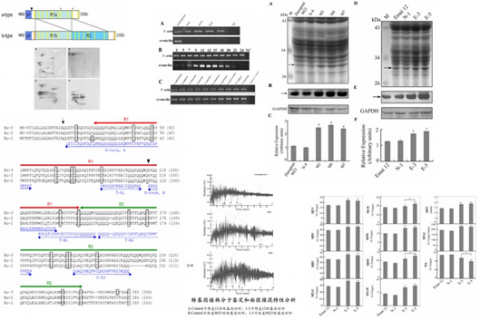
Fig 1. Cloning and functional analysis of wheat storage protein gene Avenin-like b
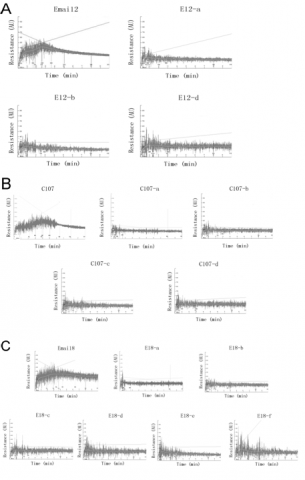

Fig 2. Breeding wheat with improved food-processing quality by genetic transformation
combined with conventional crossing method
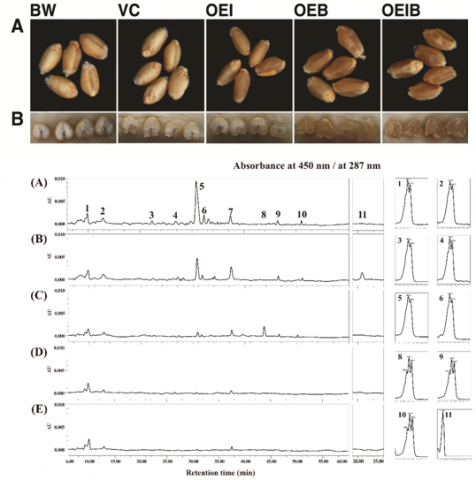
Fig 3. Grains phenotypes of transgenic wheat lines over-expressing CrtB and/or CrtI (upper)
HPLC characterization of carotenoids extracted from grains of T3 transgenic and control wheat (lower)
2. Biochemistry and molecular biology of abiotic stress response in plants
Group members: He Guangyuan; Yang Guangxiao; Wang Yuesheng; Chen Mingjie; Tu Zhiming; Chang Junli and Li Kexiu
This area is focused on understanding how plants adapt to environmental stresses by using comparative genomics, proteomics, bioinformatics, physiological and biochemical approaches. We focus on identification and functionally characterization of genes encoding important signaling components such CBL/CIPK, CDPK, MAPK; transcription factors such as WRKY,AP2/ERF,NAC, MYB or functional proteins including AQP,LEA etc.
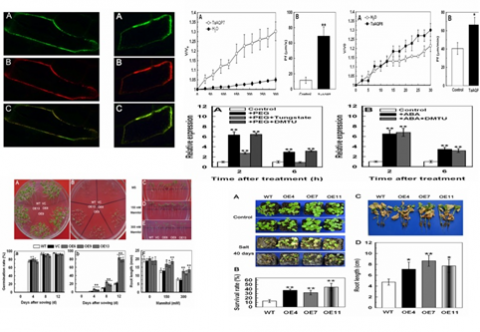
Fig 4. Functional characterization of two aquporin genes from wheat in response to drought and salt stresses
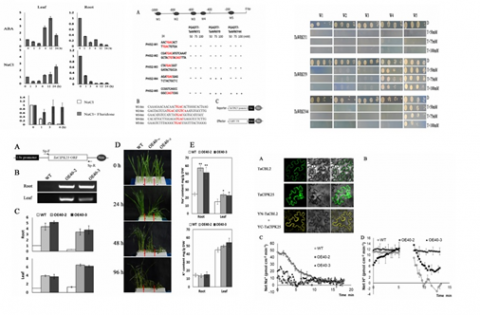
Fig 5. Functional characterization of TaCIPK25 from wheat in response to salt stress
3. Cancer and Metabolic disease and related signaling pathways
Group members: Su Li; Zhang Xinjun
This area including : Cellular signaling pathway mediated by small G protein and tumor immunology; The mechanism of Wnt signaling; Using gene knockout mouse to study the function of Wnt regulators in mammalian physiological and pathological process and transformation of medical research related to Wnt pathway.
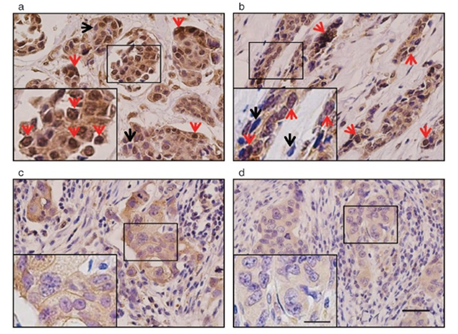
Fig 6. Nuclear SIPA1 activates integrin b1 promoter and promotes invasion of breast cancer cells
4. Structural Biology
Group members: Weng Jun; Zeng Xiaomei
This area is focused on: Biogenesis and assembly of mitochondrial ATP synthase; Roles of mitochondrial Ca2+ homeostasis in cardiovascular disease; Structure and function of important proteins related with human diseases.

